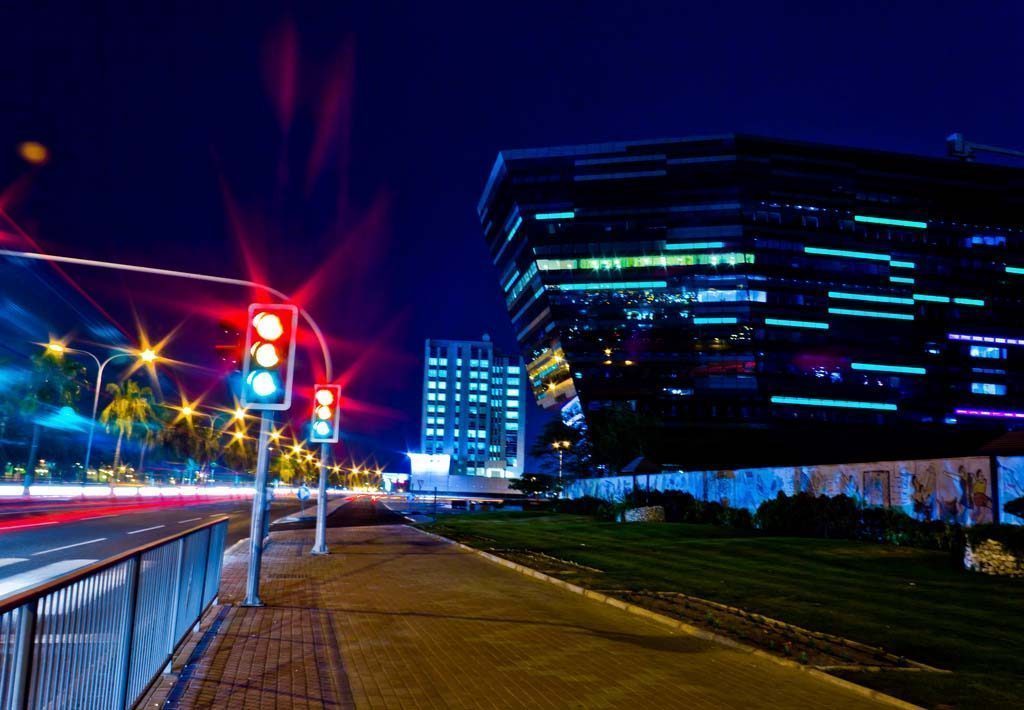
The driver of a truck whose load fell onto another car, crushing and killing a man last year, has apparently been fined QR10,000 by a Doha court this week.
The decision against the Nepali expat is in line with other court decisions in which road fatalities are punished with fines, rather than jail time.
The family of the victim, 54-year-old Derek Brown, has said it holds no ill will against the driver, but hopes motorists in Qatar will change their habits and prevent future tragedies caused by aggressive driving.
Brown, a Briton, had been driving on the Corniche toward the Ras Abu Abboud tunnel/Sharq interchange in May 2015.
Witnesses told Doha News at the time that a truck appeared to have just left the Doha Port when its load apparently shifted, causing the container to fall onto Brown’s vehicle.

Brown’s eldest son, 29-year-old Andrew, told Doha News that he traveled to Qatar for one of the court hearings earlier this year where the prosecutor argued that the truck driver had accelerated to beat a red light, causing the shipping container to tip.
Andrew Brown said he feels no hatred toward the man who was convicted last week because he knows the incident was unintentional. But he also said that whatever sentence the court handed down “would never be enough.”
He added that the accident was avoidable:
“It’s shocking how dangerous it is on (Qatar’s) roads,” he said. “If people had more respect for other drivers, accidents like this wouldn’t occur as regularly.”
‘Heartbreaking’
Derek Brown was born in Manchester but later moved to the town of Whitworth in the UK, his son said. He accepted a job in Qatar to work as an electrical supervisor for HBK Contracting Co. in late 2011.
Having spent the better part of the preceding 25 years in England, he found the transition somewhat difficult at first, his son recalls.
“He liked being near his friends and family,” Andrew Brown said.

However, he said his father soon warmed to life in Qatar. He enjoyed his work and formed strong friendships with his colleagues, leading him to plan to stay for several more years, Andrew Brown said.
He left the country temporarily for his September 2014 wedding, which included a ceremony in Puerto Calero, Lanzarote, before returning to Qatar.
In addition to being a husband and father to three children, Derek Brown had also recently become a grandfather.
“He was made up to be a granddad for the first time,” Andrew Brown said. “He had all sorts to look forward to … it’s heartbreaking. We just miss him very much.”
Road safety
Incidents involving trucks and buses only make up small percentage of collisions on Qatar’s roads, but the consequences are much more severe because they involve large, heavy vehicles.

Between 2008 and 2010, trucks and heavy equipment drivers were deemed to be at fault in more than 70 percent of collisions involving large vehicles, according to Qatar’s National Road Safety Strategy (PDF).
The government has been working to reduce the number of trucks in central Doha by, for example, requiring drivers to use the Temporary Truck Bypass.
However, public announcements suggest the measures are driven by a desire to reduce congestion, rather than improve safety.
Meanwhile, the congested area around the Doha Port, near the Museum of Islamic Art where Brown was killed, is also seeing fewer heavy vehicles as shipping operations gradually shift to the new Hamad Port in Umm Al-Houl, near Mesaieed.
Brown was one of 236 individuals killed in motor vehicle collisions in Qatar last year, a slight decline from 238 in 2014 and 246 in 2013.

Qatar’s road safety strategy aims to reduce the number of fatalities to 130 by 2022 through multiple measures including more driver education, encouraging greater seatbelt use, improving the physical design of roads as well as making traffic enforcement measures more visible and effective.
Residents have called for a greater police presence on Qatar’s roads for years. However, officers are rarely seen ticketing motorists.
Qatar’s top traffic official previously told Doha News that the situation will change this year as more officers are hired and trained.
Thoughts?







